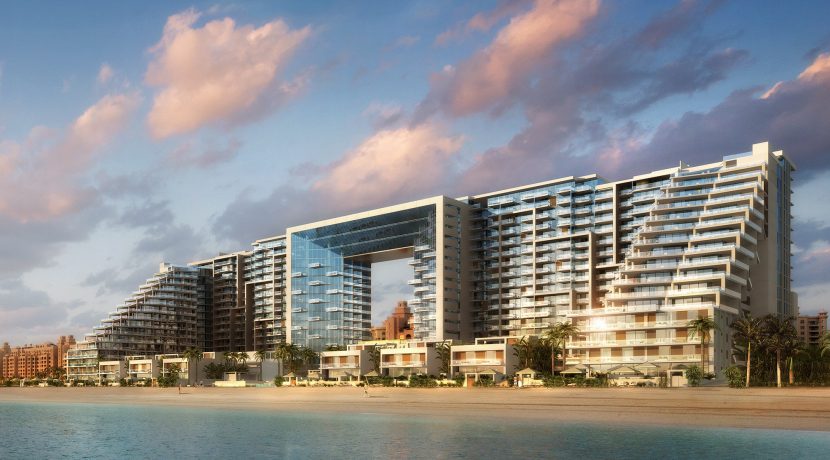It is the million-dollar question playing on the minds of expatriates in the country
Should I continue to rent a property or buy? It is the million-dirham question playing on the minds of expatriates in the UAE. Many people arrive in the Emirates thinking they will do a two to three-year stint but before they know it, they start to see the country as home.
Whether you ultimately decide to rent or buy is a personal decision depending on your own circumstances. Here is what the experts think.
If you are only planning to stay in the UAE for a couple of years, you are better off renting. However, if you live here for longer than five years you should at least consider purchasing a property.
“Many people here are only on short-term contracts, so they don’t want to make a long-term investment if they are only here for a couple of years,” says Craig Plumb, Head of Research for the Middle East and North Africa at JLL. “Because of that there is a relatively low percentage of people who have bought.”
Buyers’ market
That is now changing – and with good reason, according to experts. The property market has matured since the crash of 2008.
“Both the increases and the decreases in prices are a lot more measured and tempered,” says Rohit Garg, Head of Business Banking at Mashreq Bank. “There has been a rise in the [number] of transactions.”
Property analysts say that after stalling for the past two years following the 2014 oil shock, Dubai’s sales market showed some signs of recovery during the springtime.
Figures released by the Dubai Land Department (DLD) revealed that between January and June this year, the value of transactions stood at Dh132 billion, which is 16.8 per cent higher than the Dh113 billion recorded in the same period in 2016.
The total value of new mortgages also increased, from Dh48.3 billion to Dh60 billion, according to the DLD.
The ratio of mortgages to sales has risen sharply in recent years – standing at around 15 per cent in 2011, compared to more than 50 per cent in 2016, says Plumb.
“That is a good indication that the market is moving towards buying property for occupation, rather than investment. In Dubai, investors have traditionally dominated the market. It has been very much a cash market.”
Customer centricity
As the size of the mortgage market in the UAE increases, financial institutions such as Mashreq are primed to cash in. The bank, which is celebrating its 50th anniversary this year, is one of the most active lenders in the UAE, offering a large range of mortgage products, which are even available to non-residents.
“Mashreq has been a top three player in the mortgage lending space for some time,” says Garg. “We have had strong commitment in the local market for many, many years. Today when you are looking at buying property, Mashreq offers you extremely attractive rates.
“At Mashreq, our focus is on ensuring that customer service is the key, which means you will receive a decision on your application very quickly. It will be transparent. The interest rate will be one of the best in the market, and our aftersales service helps ensure the property transaction is done and all the documents are in our custody for a smooth experience. Customer centricity is why you should choose Mashreq.”
Attractive prices
Dubai is still an attractive market for investors, offering a yield of around 6-7 per cent, which is far higher than other major global cities.
“If you compare prices to London, Hong Kong and Singapore, Dubai is attractive on three points,” says Garg. “The entry point is far lower, which is the price per square foot, the rental yield is far higher and the tax rate is low.”
There are also other important reasons why it is also attractive to prospective owner-occupiers.
After the crash of 2008, prices started rising in 2012 until about the third quarter of 2014. Since then there has been a slight softening and experts believe that they have now bottomed out, making it a very good time to buy, despite recent interest rate rises.
Interest rates
“The rates are still very attractive,” says Garg. “Interest rates may go up for a couple of years and then they go down again. But the impact on the equation will not be such at least unless there was a dramatic rise in interest rates, which we don’t foresee.”
Mortgages are available for up to 25 years here, but most expats pay theirs off in eight to ten years, adds Garg. And if you do the sums, a mortgage works out as cheaper in the short-term with lower monthly payments, say experts.
“I always use the example that my property is worth around Dh1.7 million,” says Jo Philips, General Manager for the mortgage division of Holborn Assets.
“If I was to buy the property I would need to put down around 33 per cent deposit. However, my monthly rent was about Dh11,250 a month and if I was to take a mortgage out it would be around Dh6,300 over 25 years. Moreover, you are putting the money into the property. You are not putting it into a landlord’s pocket.”
All rights reserved to the initial publisher for Gulf News.
Collected and published by Arms &McGregor International Realty® editorial team. Get in touched with us at [email protected]

